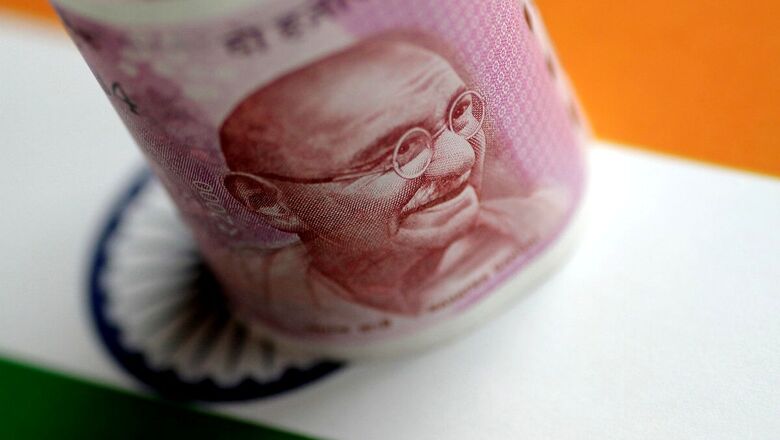
views
The Indian rupee slumped 52 paise to 74.87 against the US dollar in opening trade on Monday, amid fears that a rapid resurgence of COVID-19 cases in the country could disrupt the economic recovery. Besides, the heavy selloff in domestic equities also weighed on investor sentiment.
At the interbank forex market, the domestic unit opened at 74.80 against the US dollar, then fell further to 74.87, registering a fall of 52 paise over its previous close. On Friday, the rupee had settled at 74.35 against the American currency.
The Indian rupee started on a weaker note against the US dollar after another surge in coronavirus infections over the weekend increased the risk of more broadbased lockdowns, Reliance Securities said in a research note. India’s total tally of COVID-19 cases crossed 1.50 crore with a record single-day rise of 2,73,810 new coronavirus infections, while the active cases surpassed the 19-lakh mark, according to the Union Health Ministry data updated on Monday.
Registering a steady increase for the 40th day in a row, the active cases have increased to 19,29,329 comprising 12.81 percent of the total infections, while the national COVID-19 recovery rate has dropped to 86 percent. Meanwhile, Asian currencies were mostly weaker this Monday and could weigh on sentiments, the Reliance Securities’ note said adding that “the RBI could be present to curb volatility”.
In the domestic equity market, the 30-share BSE benchmark Sensex was trading 1,189.83 points lower at 47,642.20, and the broader NSE Nifty was down 340.60 points at 14,277.25. Foreign institutional investors were net buyers in the capital market as they purchased shares worth Rs 437.51 crore on Friday, according to exchange data.
Meanwhile, the dollar index, which gauges the greenback’s strength against a basket of six currencies, rose 0.10 percent to 91.64. Brent crude futures, the global oil benchmark, fell 0.37 percent to USD 66.52 per barrel.
.
Read all the Latest News, Breaking News and Coronavirus News here. Follow us on Facebook, Twitter and Telegram.















Comments
0 comment